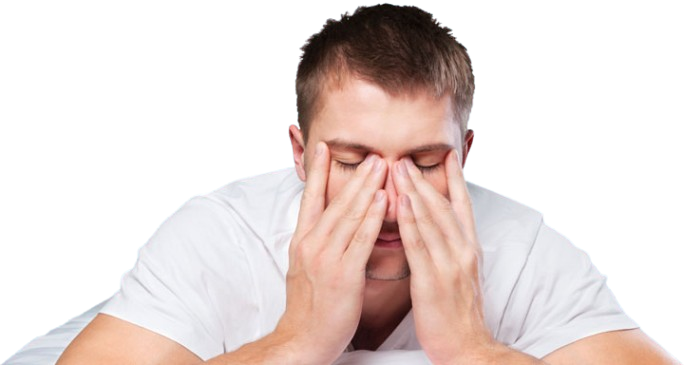How Alcohol and Sleep: Key Insights for Better Rest
So, you’ve had a few too many drinks, and bedtime is looming—at least you’re guaranteed a good night’s sleep, right? Unfortunately, that’s a myth. While alcohol may initially help you fall asleep, it disrupts your sleep quality in the long run, leaving you groggy and less refreshed the next day.
Many of us assume that alcohol is a helpful sleep aid because it has sedative effects. However, even moderate drinking can interfere with the restorative sleep your body needs to heal and recharge. “Alcohol might feel like a quick fix for sleep issues, but it undermines your body’s ability to get the deep, restful sleep it truly needs,” explains Dr. Sumit Samant.
How Alcohol and Sleep Are Connected
At first, alcohol may make you feel drowsy, but as your body metabolizes it, the effects shift. Let’s take a closer look at how alcohol and sleep are linked:
- Reduced Deep Sleep:
Alcohol significantly reduces the amount of time you spend in deep sleep, the restorative phase of your sleep cycle. Deep sleep is crucial for tissue repair, immune system strengthening, and memory processing. Without it, you wake up feeling groggy and unrested, no matter how many hours you spend in bed. - Disrupted Sleep Cycles:
As alcohol leaves your system, your body often rebounds into lighter REM sleep—the stage where you dream and are more easily awakened. This disruption leads to frequent wake-ups throughout the night, causing you to toss and turn. - Suppressed Melatonin Production:
Alcohol interferes with your body’s natural production of melatonin, the hormone responsible for regulating your sleep-wake cycle. Binge drinking can suppress melatonin for up to a week, throwing off your internal clock and making it harder to fall asleep naturally.
“When we don’t get enough deep sleep, it’s not just our energy that suffers—our physical health, mental clarity, and emotional well-being take a hit too,” says Dr. Anitha Patel.
Do You Have to Quit Alcohol Completely to Sleep Better?
The short answer: No. However, moderation and timing are crucial when it comes to alcohol and sleep. While some people choose to join the “sober curious” movement for health reasons, many still enjoy a drink now and then. If you want to enjoy alcohol without disrupting your sleep, there are several ways to minimise the negative effects.
1. Time Your Drinks Wisely
The timing of your drinks can significantly impact your sleep quality. By stopping your alcohol intake at least 4 hours before bed, you give your body time to metabolise it before hitting the pillow. If your usual bedtime is around 10 p.m., try to have your last drink no later than 6 p.m. This approach helps prevent alcohol from interfering with the deep sleep stages later in the night.
“Alcohol close to bedtime acts like an intruder in your natural sleep cycle. Give your body the time it needs to process it, and you’ll wake up feeling much better,” advises Dr. James Wethasinghe.
2. Stay Hydrated
Alcohol is a diuretic, which means it causes you to lose more fluids than you consume, leading to dehydration. Dehydration not only worsens hangovers but also exacerbates the effects of poor sleep.
To counteract this:
- Alternate alcoholic beverages with glasses of water or electrolyte-rich drinks to stay hydrated.
- Keep a glass of water by your bedside for when you wake up feeling parched.
- Start hydrating before you drink—ensure you’re drinking plenty of water throughout the day.
“Hydration can’t undo all the effects of alcohol on sleep, but it can reduce the severity of dehydration, which often makes you feel worse the next morning,” notes Dr. Anitha Patel.
3. Eat a Balanced Meal Before Drinking
Drinking on an empty stomach can lead to faster and more intense alcohol absorption, which impacts your sleep quality. To slow the absorption rate, have a well-balanced meal before you drink. This meal should include:
- Protein: Helps stabilize blood sugar levels.
- Healthy Fats: Slow digestion and alcohol absorption.
- Complex Carbohydrates: Provide sustained energy and help prevent blood sugar crashes.
“Food acts as a buffer, giving your body more time to metabolize alcohol and reducing its disruptive effects on your sleep later on,” says Dr. James Wethasinghe.
Your Partner in Sleep Health: Auckland Sleep’s Multispecialty Approach
At Auckland Sleep, we understand that achieving restful sleep goes beyond simply cutting back on alcohol. That’s why we take a multi-specialty approach to address your unique sleep challenges. Our team of sleep physicians, physiotherapists, psychologists, and other experts work together to uncover the root cause of your sleep issues and provide personalised solutions.
Whether you’re dealing with sleep apnea, insomnia, or just need help adjusting your habits, we’re here to guide you to better sleep.
“Sleep health is never one-size-fits-all. We’re dedicated to tailoring solutions that fit your lifestyle and health goals,” says Mohan.
Book Your Consultation Today
If alcohol or other factors have thrown off your sleep, we’re here to help. Whether it’s trouble falling asleep, insomnia, or conditions like sleep apnea, our team at Auckland Sleep is ready to guide you toward better rest and improved well-being.
Contact us today to schedule your consultation and discover how our multi-specialty team can transform your sleep health.


